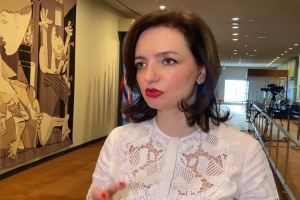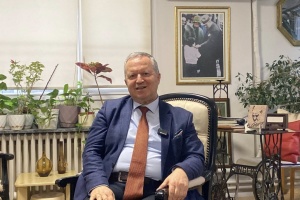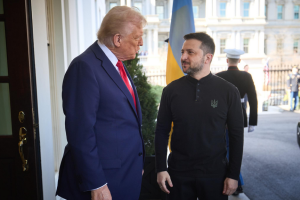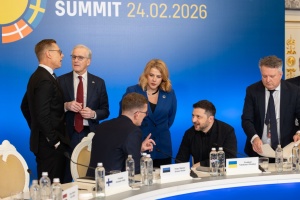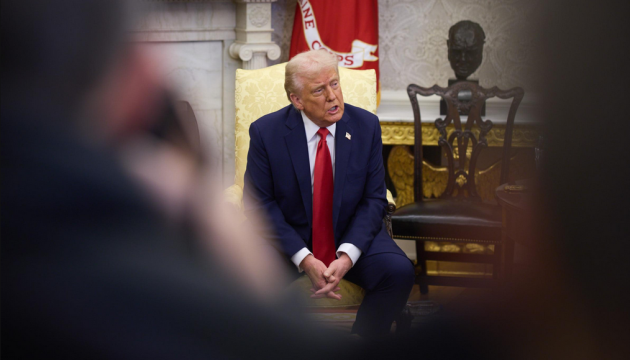
How should Ukraine approach Trump and his inner circle?
Ukraine’s diplomatic corps have been faced with a challenge: to develop an appropriate way of working with President Trump, who does not think like a classic politician is supposed to. The ways for this are there.
Relations between Kyiv and Washington have tended to see a slowdown following the breakdown of negotiations at the White House on February 28. It got to the point where Trump announced a temporary pause in US weapons deliveries allocated to Ukraine under past Presidential Drawdown Authority packages. An apology from Zelensky, the expression of gratitude to the United States, and a demonstration of readiness for peaceful settlement were set as preconditions under which Washington would be ready to consider unfreezing aid.
Kyiv’s response was not long in coming. On March 4, Zelensky, after consultations with European leaders, published a lengthy social media post, in which he said "it was time to make things right". The Ukrainian leader also outlined the first stages of how the war could be ended.
"We are ready to work fast to end the war, and the first stages could be the release of prisoners and truce in the sky – ban on missiles, long-ranged drones, bombs on energy and other civilian infrastructure – and truce in the sea immediately, if Russia will do the same," he wrote.
"Then we want to move very fast through all next stages and to work with the US to agree a strong final deal."
In his social media post, Zelensky regretted that Friday's meeting "did not go the way it was supposed to", adding: "It is regrettable that it happened this way”. "It is time to make things right. We would like future co-operation and communication to be constructive."
In his post, Zelensky offered an overt declaration of gratitude for the help the US has so far given to Ukraine.
"We do really value how much America has done to help Ukraine maintain its sovereignty and independence," he wrote.
This turned out to be enough to alleviate tensions to a degree. Trump accepted the Ukrainian President’s “apology,” welcomed his initiative for peace talks and a return to discussing the mineral resources deal. However, the key issue – weapons aid – remains in a limbo.
The C.I.A. director, John Ratcliffe, said Wednesday morning during an interview on Fox Business that he thought the pause [in aid] “will go away”, and the U.S. still intends to work with Ukraine in its ongoing conflict with Russia.
"We'll work shoulder to shoulder with Ukraine, as we have to push back on the aggression that's there," Ratcliffe said.
Despite this, it is obvious that Washington will “play” on the Ukrainian issue more than once, using a policy of pressure and setting conditions. That said, what should Ukraine do on the diplomatic front in a situation as complicated at it is now?
Trump is not a diplomat nor is he a politician in the classical sense, like former People’s Deputy Mustafa Nayem wrote very clearly in one of his blogs. Let us quote a few paragraphs: “For Trump, negotiations are not about finding a compromise, but a game in which the one wins who knows how to pressurize, manipulate, change the rules on the fly in his favor and impose his conditions. It doesn’t matter who is in front of him – a partner, an enemy, a state or even an entire country. The only thing that matters is who is the first to give up. His statements, ‘shock values’, threats and blackmail are not a manifestation of impulsiveness, not a worldview, but a strategy and skills honed over the years, which he described in detail in his book “The Art of the Deal”. He wrote it at the age of 41, but his methods have not changed since then. I read it and believe that this book should be studied by everyone who is going to deal with Donald Trump in the future.”
“It is worth considering the setting up of a position of Special Envoy akin to that of Keith Kellogg, who does not hold official positions, but can become a key to communication”
Oleksandr Matsuka, Ukrainian diplomat and Chief of the UN Security Council Secretariat in 2012-2016, said in a comment to Ukrinform that today, there is hardly anyone who can say in clear terms what to do under the current circumstances.
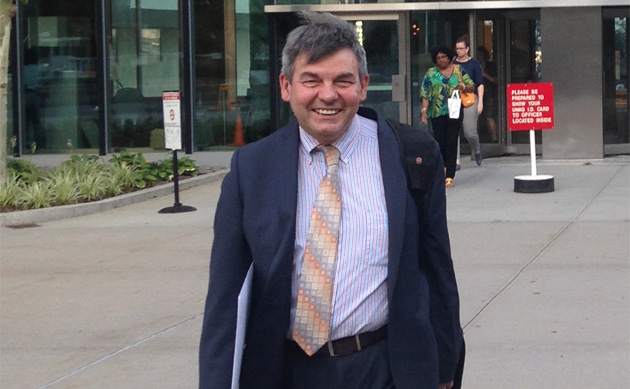
“We are unaware of how far Donald Trump is biased in relations with Russia – and there are no conspiracy theories here. I’m just proceeding from what’s on the surface. It’s important to bear in mind: Trump is neither an ally nor a partner for Ukraine. He is a mediator, and the key goal pursued by such a mediator is his own success. He has repeatedly stated: “I will end this war,” but he has never specified what he will do fairly plain or what will help Ukraine not lose,” Matsuka says.
He is sure that, if to achieve this “success” it would suffice just to “cut off oxygen flow” to one of the parties and satisfy all the demands of the other – Trump can go this way, even more so if the Nobel Peace Prize, Trump’s “fixe idee”, shines for him in the future.
Under any circumstances, working with current US president is an extremely challenging job.
“Firstly, there have been many follies committed already. Secondly, access to Trump is strictly limited. Approaching him through his administration? A dubious option. Trump has surrounded himself with people who are afraid to express their own opinions and only give him the thumbs up. An illustrative example is how people from his entourage reacted to the explosive Oval Office meeting on February 28: in a story published on the White House official website, administration employees, senators and congressmen sang his praises. Similar atmosphere prevailed during Trump’s speech in Congress on March 4, sparking reminiscences of Soviet times, when people were afraid to be the first to stop applauding,” the diplomat ironically says.
Mr. Matsuka believes official channels of communication do not seem to work as they should.
“Should we replace Ambassador [of Ukraine to the United States Oksana] Markarova? It would look like an attempt to please Trump on the one hand, and as if we gave in on the other. Instead, we should think about setting up the position of a special envoy – a person wo will be key to communication while not holding an official position. It should be someone who does not evoke negative associations in Trump and people from his inner circle, who was not present in the Oval Office on February 28,” the expert said.
Who could become such a figure? There are options: it could be some of the diplomatic service veterans, political heavyweights or influential businessmen.
“It is most important that the search is not limited only to people loyal to the current government. On the contrary, it could even be a critic of it – so that s/he is taken seriously in the US. There will be no second chance. It is therefore necessary to act strategically, shaping a positive image of Ukraine in the eyes of Trump and his inner circle. After all, our country is for them something like Afghanistan. And this false paradigm needs to be shattered,” Oleksandr Matsuka emphasizes.
The fact that Trump is a businessman only sounds good in books, but the reality is completely different, our interlocutor believes: “I am old enough to remember Hollywood films of the 80s and 90s, where Trump appeared as a caricatured figure. He is said to have come into business with his father’s millions, runs things in a harsh manner, and not always with clean methods. And this is not just a stereotype. There was a period when American banks stopped loaning him money, because they knew: he would return a maximum of a third of what he borrowed. This is key in understanding who Trump is.”
The diplomat emphasizes: Trump is not interested in emotions, morality or values – he sees only personal interest. For example, when Zelensky brought him photos of Ukrainian warfighters released from Russian captivity – it was a strong symbolic gesture, but not for Trump.
“We have employed this approach more than once in the UN Security Council – take Yelchenko or Kyslytsia -- and it worked well. But it works for those to whom values matter. In Trump, empathy seems to be lacking at the genetic level. Therefore, we need to speak a different language with him – the language of benefit. If he talks about apples, and we talk about oranges – that is, about security guarantees – there will be no dialogue. He does not understand this nor does he want to. There is no point in nurturing illusions either: Trump has no intention to give Ukraine any security guarantees. But if we find levers that will be of interest to him, there is a chance for reasonable discourse. Once again: Trump wants to end the war at the earliest time possible – and that is his only real priority. He will not be swayed by arguments that terminating weapons aid will only increase the number of victims. He will simply answer: “Well, then surrender so that there are no more victims. These are your problems, not mine.” The main mistake would be to continue to perceive Trump as if he is an ally or partner. He is not an ally or a partner, he is guided solely by his own interests,” commented Mr Matsuka.
That being said, Ukraine's strategy should be different: to work not only with Trump and his administration, but also with the entire Republican "ecosystem" - with the conservative part of American society, Republican politicians, media outlets like Fox News. And this work should be systematic, comprehensive and continuous 24/7.
"Regarding communication with Trump personally - confrontation will not work. And we have seen this already. He should be worked with in a gentle manner, as if he is a child who demands attention. A good example is Emmanuel Macron. He did not always agree with Trump, but he built a dialogue in a warm, friendly manner, and this yielded results. Ukrainian negotiators should have perhaps learned golf. Because for Trump it is not just a hobby - it is a way of communication, and often a way of resolving issues," - believes Oleksandr Matsuka.
“We need to be adaptable, ready to compromise while at the same time maintaining dignity, defending national interests in specific areas”
Volodymyr Fesenko, board chairman of Penta Center for Applied Political Studies, says that the set of things that need to be done is quite obvious. These are:
- Demonstration of readiness to sign a minerals deal with the US, after the failure to do so at the Washington meeting. This has already been done;
- Diverse political gestures of respect for Trump, readiness for constructive cooperation and peace talks. This is also being done, as seen, in particular, from recent statements by President Zelensky;
- Mediation efforts by our European and American friends to resolve the conflict situation respectably. This is also being done.
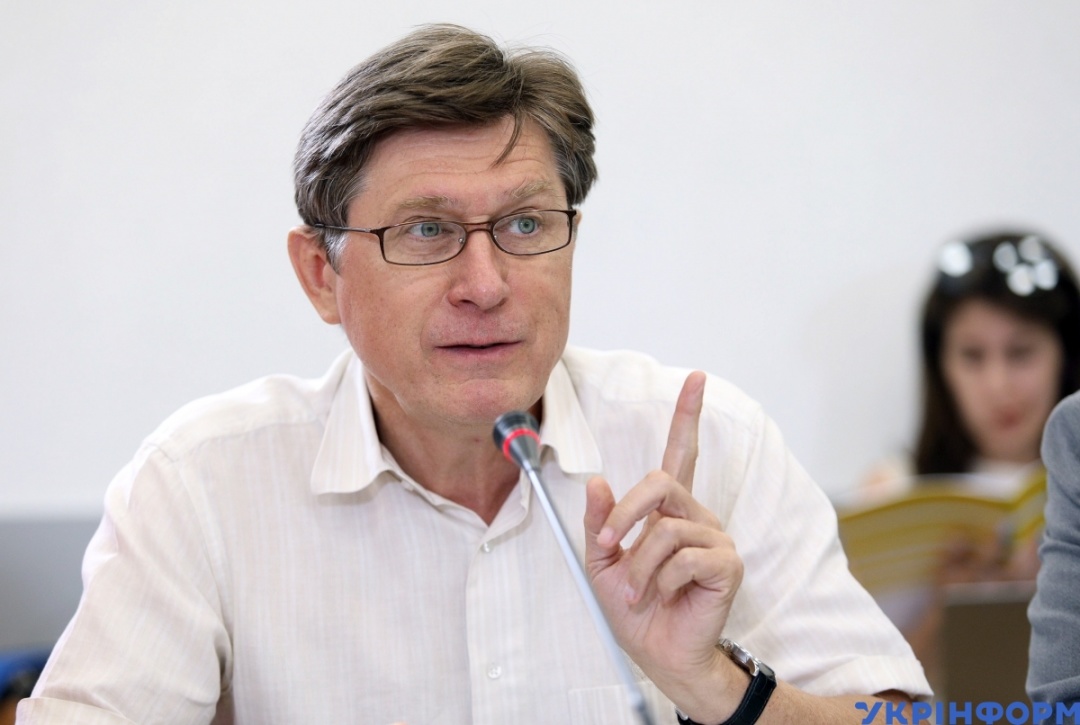
“Trump’s speech in the US Congress is indicative of how the situation will develop further. No matter what, the de-escalation of our bilateral relations, if it happens, will be gradual, and normalization will be relative. During potential peace talks between the US and Ukraine, fundamental divisions may arise again if the US insisted that the war must be ended on Russian terms,” Fesenko believes.
Regarding Trump... First, the political analyst urges, we should not rush to extremes. As in talks on the rear earth minerals deal, we must combine adaptability and readiness for compromises (as in peace talks) while upholding our interests in specific areas, for example, with respect to the status of the territories currently under Russian control or the size of the Armed Forces of Ukraine after the war ends.
“It is true that Trump is not about finding compromises, but about tough negotiations under aggressive pressure and intimidation, involving attempts to make the vis-à-vis give way. But real, meaningful negotiations with us and the Russians are not taking place with Trump (high-level meetings are typically capping the preceding negotiation process), but with officials and diplomats who are proficient in negotiations and in finding certain compromises,” the analyst suggests.
Mr Fesenko insists that Trump’s pressure must be withstood, demonstrating a willingness to negotiate on issues that are of relevance for Trump while at the time maintaining dignity and resilience during substantial negotiations, not only in communication with the US president.
“If we start apologizing to Trump now and doing everything that the Americans will demand of us, we will lose our dignity and are going to lose everything (particularly in peace negotiations), and we will get nothing in exchange for our concessions. But we should not enter into conflict with Trump or make counter-demands to him (such as security guarantees before a ceasefire is agreed), because this will have nothing but a negative effect. And this will have far more negative implications for us than for the Americans,” added Volodymyr Fesenko.
Aikido tactics would work
“In particular, we must not oppose Trump’s desire to reach a halt to hostilities as fast as possible, but support it in every way. But in the end, he is going to encounter Russia’s lack of willingness to agree to a ceasefire. We should urge the earliest possible start to ceasefire negotiations. The same applies to potential deployment of a European peacekeeping force in Ukraine after the war is over. We should take advantage of every controversy that can arise between the US and Russia during negotiations,” the expert believes.
Also, in his opinion, we should abandon banking on personal contacts between Trump and Zelensky in resolving political disputes.
“This has proved a failed approach, unfortunately. [Following the Oval Office heated dispute between Trump and Zelensky], we should pin no hopes on this any longer. The main focus should be on developing working contacts between authorized negotiators, which should not involve any influence of personal relationships or excessive political context. It is this format of negotiations that has already proved effective during work on the rear earth minerals agreement,” Mr Fesenko said in conclusion.
“Europe, and with it Ukraine, need to gain time to adapt to the emerging reality”
Andrii Klymenko, editor-in-chief of the BlackSeaNews web portal, says that Trump’s decision to hit brakes on the flow of weapons to Ukraine was to be expected, and this is obvious to everyone who closely followed the events in the US, starting with the presidential campaign.
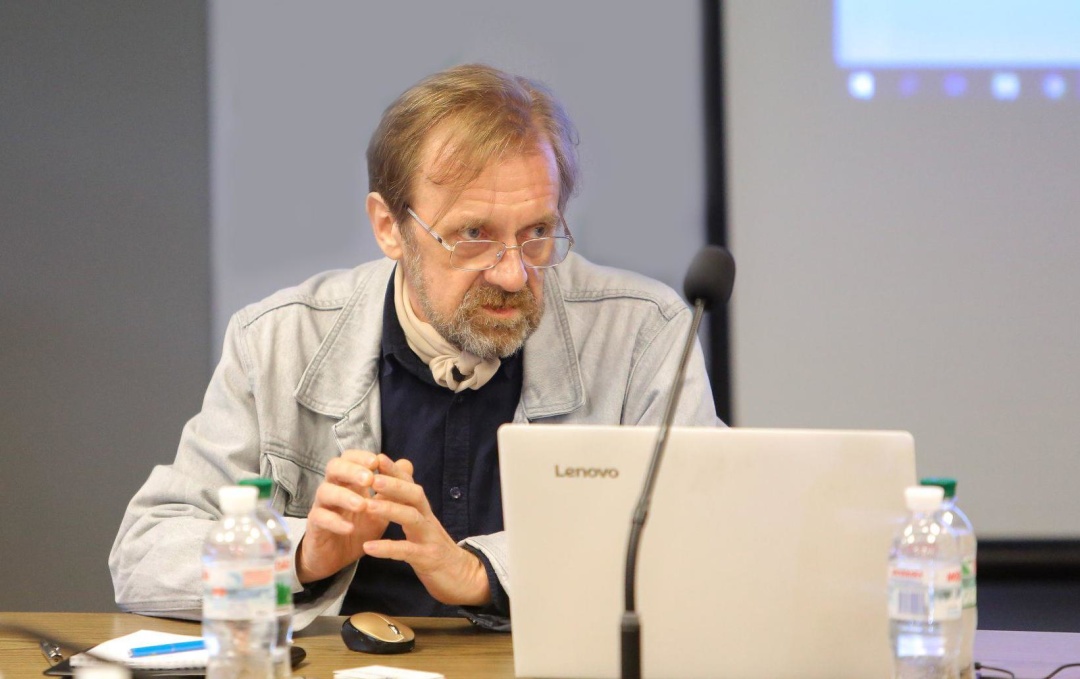
“That is, this decision was not caused by the clash between Trump and Zelensky in the Oval Office, but taken long before it, as part of the US ruling elite’s new political orientation. They, the elite, strongly dislike not only Ukraine, but also all of Modern Europe, and this is absolutely impossible to change that quickly. There is no time to look for someone’s mistakes now,” the expert says.
This is a global challenge that affects not only Ukraine. Europe too found itself in this “roller coaster”.
“It is already evident how rapidly Europe is rethinking its security policy, as evidenced by both the summit in London and the statements European leaders made before and after it. It is therefore necessary to build relations with the US anew, and in the context of diplomatic relations, with new people. In particular, the Ukrainian embassy in the US must be rebooted. No complaints about Ms. Markarova, but global diplomatic practice suggests that such failures are typically followed by personnel reshuffle, new people should appear who will be more successful in building the bridges. After all, we need people understanding that this is no longer work with an ally, but not with an opponent either. We need to understand that, without America, this is going to be a long story,” Mr Klymenko continues to say.
There should also be an understanding that any manifestations of weakness, humiliation and suchlike cannot and must not be tolerated.
“Ukraine should appear in the eyes of the American people and in the eyes of the Trump administration like a state with dignity, with a strong character, which it actually is. We will cope without you, especially as Europe is standing with us, but America will be ashamed of it - this is how I would formulate the message that is spontaneously formulated by the Ukrainians familiar with this situation.”
This is about strategy. But what about tactics?
“Understanding all of the above, Europeans cannot just slam the door on the Americans. US-EU relationships -- defense, financial, intelligence and others --have been building for decades, and a sharp breakdown will have severe implications for both. At the same time, it must be appreciated that NATO in its current form is unlikely to remain effective, and so Europe is gradually moving towards the creation of a new defense architecture, says the expert. “Actually, the European Union is also in crisis due to the presence of pro-Russian agents among its members, such as leaders of Hungary and Slovakia, and there is probability that this pool of pro-Russian politicians within the EU will expand soon. Therefore, strategic decisions are needed, but they cannot be made overnight.”
Europe, and with it Ukraine, are now trying to buy time to adapt to the reality that emerges
“EU leaders have sent Zelensky a clear message: “We will help you become stronger, even without the US.” European Commission President Ursula von der Leyen has already announced new policy of building up European defense capabilities (in particular, this is about a €800 billion plan to fund a major rearmament push), which is an unprecedentedly fast step for Brussels. But at the same time, the West is counting on Ukraine, in the hope it will help them prevent a sharp escalation in relations with the US. Therefore, Zelensky’s move looks quite logical and appropriate. He does not apologize to Washington, but expresses regret about what had happened. Incidentally, not just he suggests an agreement on rear earth minerals, but insists that it include a security component. This is a well-though-out tactic that responds to the request of European partners – not to escalate the situation prematurely. After all, no matter what, the divorce between Europe and the US is almost imminent, but it should be peaceful divorce without ‘breaking dishes’,” Andrii Klymenko says.
“Working with European allies and other international partners will help balance out the negotiation ground and achieve decisions beneficial to us”
“What to do? The answer is quite obvious: in no case should we engage in one-on-one contacts – neither with Trump nor with Putin. Ukraine must coordinate its moves with its European partners,” says diplomat Vadym Tryukhan.
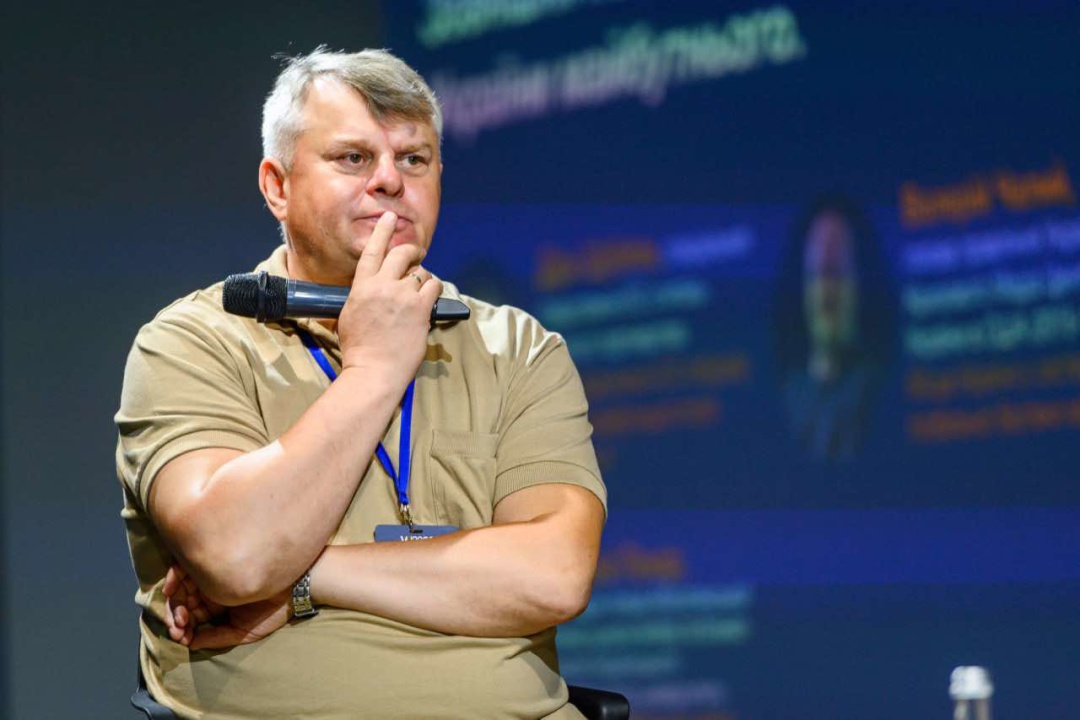
The format of one-on-one negotiations is a losing approach for Ukraine. We are dealing with the US and Russia, who, despite all the differences between them, are still willing to be partners, particularly in areas of economy and security.
“That said, our strategy should be to act as one with European allies who will be able to balance out the situation,” says Tryukhan. “First comes a common position with the Americans, followed by a dialogue with the Russians based on a clearly agreed position. This is the key to getting out of the diplomatic impasse in which Ukraine found itself not because of its own mistakes, but because Trump’s and US interests are in fundamental contrast with those of Ukraine.”
The second key direction is close cooperation with European partners in all areas and dimensions. Negotiations on EU accession should be made a second priority following a dialogue with the US on ending the war.
“Achieving EU membership is not just a geopolitical goal for Ukraine, but an existential need. We need to survive, and European integration is a guarantee of economic, political and security stability. A positive signal is that several European leaders are already declaring that Ukraine could become an EU member in 2030 or even earlier. The entire state machine must work on negotiations with the EU - complex, multi-level, sectoral," the expert emphasizes.
The third priority for Ukrainian diplomats should be the work with the countries of the Global South, including even China.
"Let's not forget that on February 24, 2025, China abstained from voting on a UN resolution, which the US and Russia onjected, suggesting Beijing is closely monitoring the situation and has not yet made up its mind”, believes the diplomat. Ukraine needs to dialogue intensively with China, seeking to convince Beijing not to become an ally for Russia similar to the one Pyongyang has become for the Kremlin. The latest press reports that Beijing is in talks with Moscow regarding the possible presence of its military personnel in the Ukrainian regions currently under Russian occupation to gain combat experience cause serious concern.
So, these three areas – coordination with European partners, European integration and work with the Global South – are key for Ukrainian diplomatic corps in the current situation.
How to talk to Trump
“If Ukraine makes concessions to Trump, giving up its interests, it will be a disastrous decision. However, the current situation suggests that our country does not succumb to pressure and remains a strong player. Judging by his address to Congress, Trump has seen this and even responded in a positive way to Zelensky’s statement,” Vadym Tryukhan goes on to say.
A dialogue with Trump is possible, but it must be a dialogue between the equal.
“Zelensky enjoys support from the Ukrainian army and people. This is a fact and a key advantage that should be used in negotiations. One of the most effective ways to communicate with Trump administration is through business. Many of his associates think primarily in commercial terms, and this should be taken into account. Ukrainian businesses are already actively operating in the United States, and interaction should be strengthened.”
The diplomat once again reiterated that Ukraine must not be left alone with Washington.
“Currently, only three European leaders -- Meloni, Starmer, and Macron -- have meaningful influence on Trump... Will the incoming German Chancellor be ready and willing to join this troika? We’ll see. Most likely, he will. Germany with its number-one economy in terms of gross domestic product is the engine of Europe. It is unlikely that Washington will be paying no heed to Berlin,” the expert said in conclusion.
Myroslav Liskovych. Kyiv

